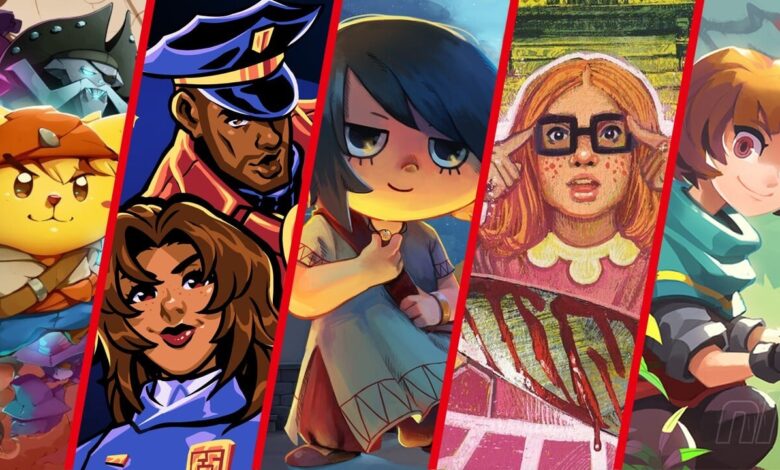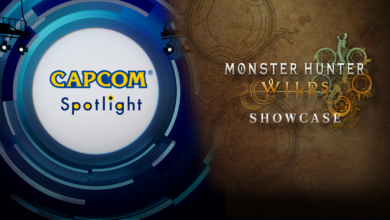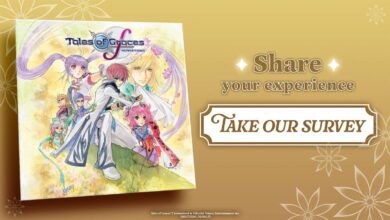How Can Switch 2 ‘Fix’ The eShop? Devs Share Their Storefront Stories


If you are the proud owner of a Nintendo Switch (and if you’re reading this, we’d wager that you are), then it will come as no surprise when we say that the eShop is a wild place in 2024.
While gaming may have never been better, Nintendo’s storefront has never been worse. Discoverability is a thing of the past with new titles added in waves of 30 or more each week, and keyword-dumping scam games are more prevalent than ever.
But compared to several years ago, and with the backwards compatible ‘Switch 2’ looming, what’s it like from the perspective of those trying to sell a game on Switch in 2024?
We spoke to developers and publishers from across the industry to learn their thoughts on the current Switch eShop and gauge what kind of improvements they would like to see Nintendo make in the future.
Here’s who we spoke to:
Note. We spoke to another dev who wished to remain anonymous – their responses are marked below as Anon. Not everyone was able to answer every question (and we’ve edited several responses that cover the same ground), but the following answers give an insight into the state of the eShop today.
Compared to previous years, how important is a Switch release to you in 2024?
Jérôme Châtelain (Kepler Interactive): Switch remains a strong platform for us. Depending on the title, the platform can even be the strongest in terms of net revenue. Switch is very important, especially later in the console’s lifecycle when discounts are more important for the conversion of wishlists into sales.
Sophie Smart (No More Robots): Definitely less so than in previous years. We love the Switch, and so many of our games are on there, but with sales slowing down across all platforms, we now really need to pick and choose which games are worth porting to Switch for us. The cute and cosier games always make sense since they sell better on Switch, but some of our grittier, more tactical titles have been hard to justify porting over at this stage.

Dan Muir (Hound Picked Games): The visibility tails off so quickly now, compared to recent years. Previously, games would consistently sell before boosts were needed from entering sales to increase the visibility of the titles.
Paul Dolby (Fossil Games): Nintendo Switch is one of the platforms that we were most excited about releasing both Camp Sunshine and Sunshine Manor on. Having played games on there for years, it feels like an enormous milestone to release onto the eShop.
Andy Pearson (PQube): It depends on the titles, but we have seen Switch releases drop through 2024. There was a pretty clear switch during 2022 where in some cases we saw Switch sales for certain games consistently outperforming Steam as high as 80% Switch / 20% Steam. There was a period of parity between the platforms on certain games, but in the last 12 months, the tide has swung very much in Steam’s favour on games where we’ve had simultaneous releases on both platforms. This is to be expected, however, as we enter the latter part of Switch’s lifespan.
Callum Owen-Valentin (Kepler Interactive): Switch releases remain very important to us in 2024 due to its massive install base (over 140 million units sold!) with strong player engagement, even eight years into the console’s lifecycle.
Kate Gray (Freelance): Still important, and most likely easier, since porting studios have a lot of experience in Switch releases now. But the difficulty of working with Nintendo’s strict guidelines and the lack of peripherals/keyboard support means that I’m not surprised a lot of games don’t bother coming to Switch, especially those which work better with a mouse and keyboard, or have text too small to work in handheld mode – Her Story and Baldur’s Gate 3 come to mind. Depending on the kind of game I make next, those are the kinds of factors I’d have to weigh up to see if it was worth it.

How have you found Switch eShop visibility in recent years? Do you think it suffers from having too many games?
Joshua Van Kuilenburg (HomeBearStudio): There seems to be little curation for quality, which impacts consumer trust. That’s not great for small developers who depend on players taking a leap of faith on smaller indie titles from companies they’re not familiar with. If they actually manage to find your game after scrolling past 50 ‘Highschool Hentai’ games, that is.
Callum Owen-Valentin: Discoverability is challenging due to the sheer volume of titles released, with well over 10,000 titles on the store now. However, this issue is not exclusive to the eShop; for example, Steam saw over 18,000 releases in 2024 alone. That said, there are efforts on the eShop to improve discoverability, such as the ‘Recent Releases’ tab, what’s in the Charts, and the ‘Current Offers’ tab. […] It’s also important to consider the eShop visibility opportunities external to the eShop itself — such as the Switch News notifications and being included in the weekly ‘What’s New’ article, plus the chance to feature in the ‘Nintendo eShop Highlights‘ video series on their YouTube channel (if you’re lucky).
Jérôme Châtelain: The eShop is more a place to buy than a place to browse. […] A lot of our campaigns are self-service, which gives us a certain amount of flexibility in our communications with players, but it would sometimes be beneficial to have more themed events, with fewer games curated by Nintendo, to guide the community and encourage them to discover other games. Steam has regular events for certain genres that publishers and developers can apply to take part in more easily.

Andy Pearson: Due to the non-algorithmic nature of the eShop, new releases are always prioritised by date, which doesn’t always allow games to stay there for very long. This can also be something of a blessing, as it allows all games, to a certain degree, to get some time in the spotlight – something that isn’t always the case on Steam.
Kate Gray: Oh, it’s terrible. It’s a multi-pronged problem, too.
First, you’ve got the sheer number of games. Every storefront has this problem, and so does every developer — the barrier to entry for making games is lower than ever, and that’s great for accessibility, but it does mean that bad actors can make games, too. And a lot of them are, therefore, low-effort trash.
That’s the second issue. There’s a LOT of trash on the eShop, and Nintendo doesn’t seem too bothered about cracking down on that. To be fair, I don’t know how they could — XBLIG (Xbox Live Indie Games) suffered from it, Steam suffers from it, basically every platform that exists tends to attract low-priced trash. But Nintendo could do a few things: checking for AI content, clones of successful games, and weird pricing changes would get rid of a lot of the worst stuff. But Nintendo’s Lot Check is just about checking that the games work, and I imagine the studios that crank out most of this stuff know the loopholes at this point.
Thirdly is the interface and the algorithm (or, lack of algorithm, really). Nintendo has really made no effort to make sure that the eShop is easy to navigate, geared towards individual customers, or weighted towards the less-crappy games. I don’t ever go on the eShop unless I already know what I’m looking for, and that really seems like leaving money on the table — imagine if I went there to window-shop, and there was an algorithm that surfaced similar games to me, based on the ones I like. Nintendo has that data, why not use it? Better discoverability means easy sales for everyone. It’s baffling that Nintendo just doesn’t care!
Sophie Smart: There is no doubt that the eShop has become flooded over the last few years. The upcoming/soon-to-be-released sections are jam-packed. It’s become really difficult for players to find our games unless they are directly searching and already know it, or unless we undertake some more tactical decisions, such as deep discounting to try and get in the trending/top sellers sections.
Anon.: It’s not just too many games but the overall quality of them. There is a real glut of what I would consider ‘junk’. As a consumer, after a few pages of junk, you just give up. I know from watching my kids browse the store (one way I research how the store is presented to consumers) that there’s sometimes a complete page of nothing but junk.

How do your eShop unit sales compare to other storefronts and have you noticed this change over the console’s lifespan?
Lincoln Hershberger (Big Fan): eShop unit sales are a relevant part of our overall mix. While the numbers have started to trend down lately (in a manner to be expected for any platform approaching its eighth year), it’s stayed relatively consistent over the past few years.
Callum Owen-Valentin: Our eShop sales have been solid, but since some of our releases launched on other platforms first, it’s difficult to make a fair assessment based solely on our own sales data. However, with Cat Quest III, which launched simultaneously on all platforms, the Switch version achieved a very healthy share of sales despite being late into the console’s lifecycle.
Dan Muir: Sales have definitely decreased. Switch always dominated previous games that we, and our partners, have released. However, over the last 18-24 months, there’s been a significant tail-off and quite often, Xbox and Steam lead. This is partly from fatigue of the actual hardware itself and part awful visibility. Lots of very, very good games are being missed by gamers!
Sophie Smart: Sales are down for us across all storefronts and console sales in particular are heavily suffering. Most of our games sell less on console in general than Steam and this has always been the case, but the percentage of Switch sales to Steam has also dropped.
Jérôme Châtelain: For indies, Switch is an important platform because there are fewer competitors and big AAA games, and the console itself also makes it easier to play indie titles — especially when you can play short sessions anywhere. Portability has undoubtedly been a major advantage in that sense.
Andy Pearson: Historically, and especially on some genres/titles, we would see Switch as a lead platform. This was perhaps less so this year. While Switch games could perform strongly, Steam has been consistently the best-selling format for us in 2024, and in some cases, we’ve seen PS5 and Xbox out-perform Switch too.
Paul Dolby: For us, the eShop sales are definitely higher than the other consoles, but that initial rush of sales when a game is released is definitely lower.

How big of an impact do eShop discounts have on your game sales?
Andy Pearson: It definitely helps, but not to the extent of other platforms which have much stronger wishlisting and notification tools. Just deleting a title from your wishlist once purchased would definitely help!
Joshua Van Kuilenburg: Discounts result in much-needed exposure, but consistent discounts also create expectations. As is certainly the case with larger publishers (like Ubisoft), customers are ‘trained’ to wait for discounts down the line rather than buy the game during launch.
Sophie Smart: A huge impact! If we didn’t have our games on sale they would sell very minimally. As a result, it’s hugely important we have all of our games on sale at every opportunity we are allowed to.












